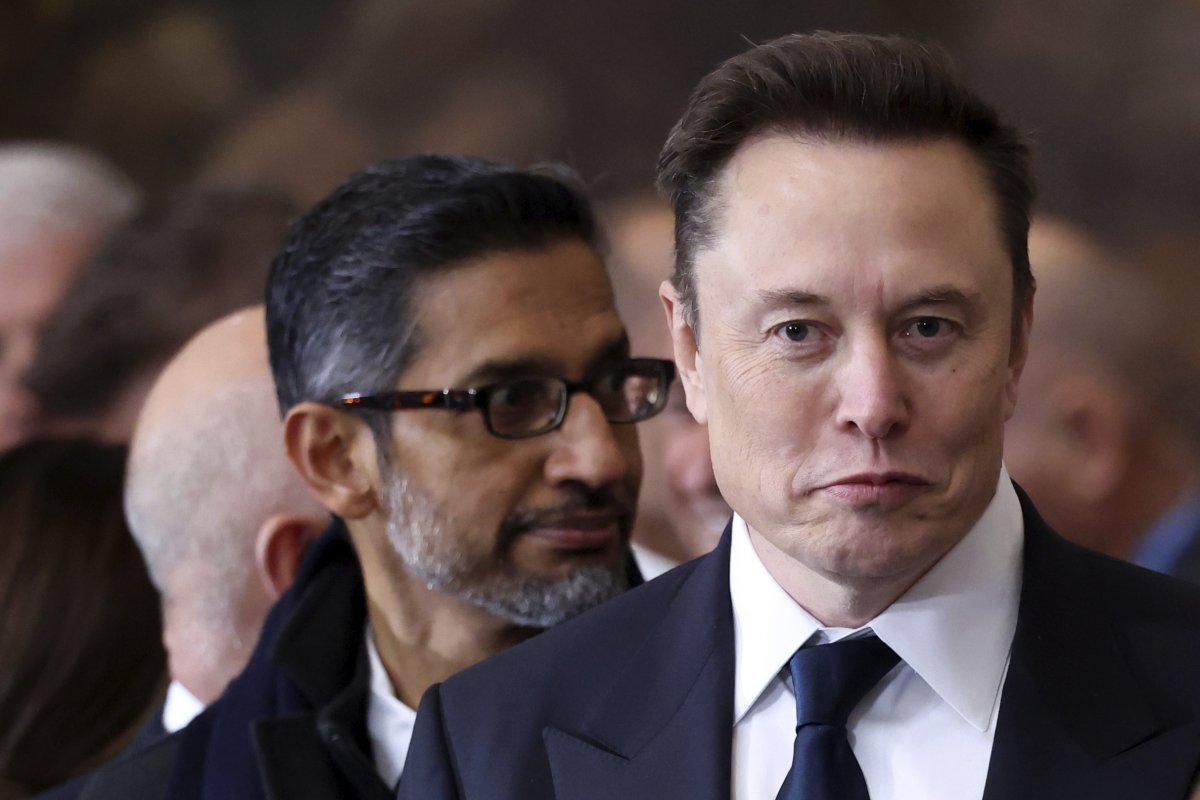-
Forget tariffs — this U.S. shoe company vows not to hike its prices - 9 mins ago
-
Donald Trump Threatens to Stop Barbie Dolls Being Sold in US - 38 mins ago
-
Prince William and Kate Middleton team up to give their kids a normal childhood - 45 mins ago
-
Why changing managers won't fix the Pirates' bigger problems - 48 mins ago
-
Melania Trump at White House kicks off Mother’s Day by celebrating military moms - 52 mins ago
-
North Korea says leader Kim supervised missile tests simulating nuclear strikes against rivals - about 1 hour ago
-
Trump’s Immigration Crackdown Has US Employers Worried: Poll - about 1 hour ago
-
Orioles vs. Twins Highlights | MLB on FOX - 2 hours ago
-
Ukraine Arrests Spies Working for NATO’s Hungary - 2 hours ago
-
Tigers vs. Rockies Game 1 Highlights | MLB on FOX - 2 hours ago
DOGE Becomes Official: What to Know
President Donald Trump’s newly established Department of Government Efficiency (DOGE), aimed at slashing federal spending, has officially been integrated into the government.
The move, finalized by an executive order on Trump’s first day in office, formalizes a commission designed to streamline government operations and reduce their size.
Trump also signed an order renaming the U.S. Digital Service as the U.S. DOGE Service. The Digital Service, initially created by President Barack Obama in 2014 to modernize government technology, is now part of the broader DOGE framework, which is directly under the Executive Office of the President.
Evan Vucci/AP
Why It Matters
The new department has prompted discussions about the future of federal efficiency, as well as raising concerns about the legal and ethical implications of its new status. The creation of DOGE coincides with Trump’s broader push to redefine federal spending priorities, with a significant emphasis placed on reducing the size and reach of government programs.
But critics argue that without proper oversight, the department could become yet another layer of bureaucracy rather than the efficiency-driving body it is intended to be.

Kevin Lamarque/Pool via AP
What To Know
Trump first announced the creation of the Department of Government Efficiency in November, positioning it as a key component of his broader agenda to reduce government waste.
Initially led by both Tesla CEO Elon Musk and former GOP presidential candidate Vivek Ramaswamy, DOGE’s goal is to trim federal spending and significantly reduce government head count. However, Ramaswamy left the commission earlier this week as he explores a run for governor of Ohio.
As part of the reorganization, DOGE is focused on eliminating inefficiencies within technology projects, particularly following the problematic rollout of the Affordable Care Act’s HealthCare.gov, a key issue during the Obama era.
Why Is Elon Musk’s Involvement in DOGE controversial?
The involvement of Musk in a government entity raises complex conflict-of-interest questions. Musk, who remains CEO of Tesla and SpaceX, could be subject to federal ethics guidelines unless he divests from his companies or recuses himself from government decisions that affect them.
What Makes the DOGE Website Unconventional?
The department has taken an unconventional approach to its public-facing presence. A government website—Doge.gov—has been launched, alongside a social media account on X (formerly Twitter), which is owned by Musk.
The website has featured a series of memes, including one with the DOGE logo showing a smiling Shiba Inu dog against the backdrop of an American flag and another promoting the cryptocurrency Dogecoin.
The website’s tagline reads, “The people voted for major reform,” reflecting the administration’s messaging about the urgency of restructuring the federal government.
As part of his executive order, Trump also established a temporary entity within DOGE, set to dissolve by July 4. This provision could enable the hiring of temporary employees or volunteers, who would likely be exempt from certain federal ethics and transparency requirements.
A potential workaround for Musk could be his designation as a “special government employee,” a status that allows him to work within the government for up to 130 days.
What People Are Saying
President Donald Trump said: “We will provide advice and guidance from outside of government,” describing DOGE as an external force tasked with driving significant budget cuts.
Noah Bookbinder, president of Citizens for Responsibility and Ethics in Washington, told ABC News: “So much is still unknown. They have now put out this order. But what they haven’t really done is to clarify how this is going to work.”
What Happens Now
As DOGE begins its operations under the Trump administration, the full scope of its effectiveness, transparency and legal compliance remains to be seen.
The integration of DOGE into the U.S. government is already facing legal scrutiny. A lawsuit filed shortly after Trump’s inauguration alleges that the commission violated the Federal Advisory Committee Act, a 1972 law requiring advisory committees to disclose staffing and activities.
Skye Perryman, CEO of Democracy Forward, which is representing the plaintiffs in the lawsuit, emphasized concerns about DOGE’s opaque operations. “The way it has been operating was under a shroud of secrecy with a number of concerns,” she said.
This article contains additional reporting from the Associated Press.
Source link































